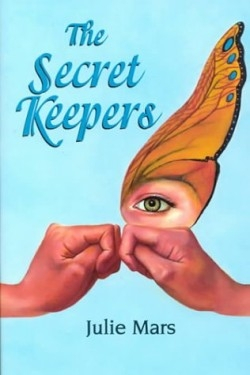
The Secret Keepers
This debut novel starts out calmly enough, as if the author is driving a taxi slowly down a New York street, pointing out quirky neighborhood characters. Then, when the introductions are over, she puts the pedal to the metal, there’s a rush of acceleration and the ride gets fast and wild. The pages seem to turn of their own volition.
Steve Gant, a former Navy man and ex-junkie who keeps a needle around just in case, observes Christine Timberlake at the Stuyvesant post office. Gant, seeking something to fill the void in his soul, becomes a voyeur. When fate gives him an opportunity to obtain a copy of Christine’s apartment keys, he begins snooping around her home.
Christine has an autistic daughter secreted away in an upstate hospital. Her estranged husband hires a private detective to find the girl. Soon, Gant is watching Christine and the detective is watching him. When signals start crossing, the story careens to its climax.
Gant’s recurring nightmare foreshadowing the resolution of his childhood trauma is an unnecessary cliché, and an ending that’s a bit too neat detracts from an otherwise fine story line.
Mars, a doctoral candidate who has taught creative writing at several New York colleges and universities, is gifted at portraying the inner lives of her characters, their vague longings and the drama of their reasoning: “Steve believed children absorbed the personalities of their parents. He knew each little child embodies the strange combination of one pair of great opposites, the masculine and feminine, but when he imagined his own parents unconsciously pouring themselves into the big end of the funnel and himself coming out the small end, he had to wonder who these tense and joyless people were.”
The finely honed plot is driven by misunderstandings, failed connections, ambiguous motives and even a sort of mistaken identity. It’s like a bedroom farce, except the story is taken out of the bedroom and slapstick humor is replaced by a kind of knowing fatalism. For most of the book, everything that can go wrong does go wrong, which is what makes the story so disarmingly plausible.
Reviewed by
Rich Wertz
Disclosure: This article is not an endorsement, but a review. The publisher of this book provided free copies of the book to have their book reviewed by a professional reviewer. No fee was paid by the publisher for this review. Foreword Reviews only recommends books that we love. Foreword Magazine, Inc. is disclosing this in accordance with the Federal Trade Commission’s 16 CFR, Part 255.
